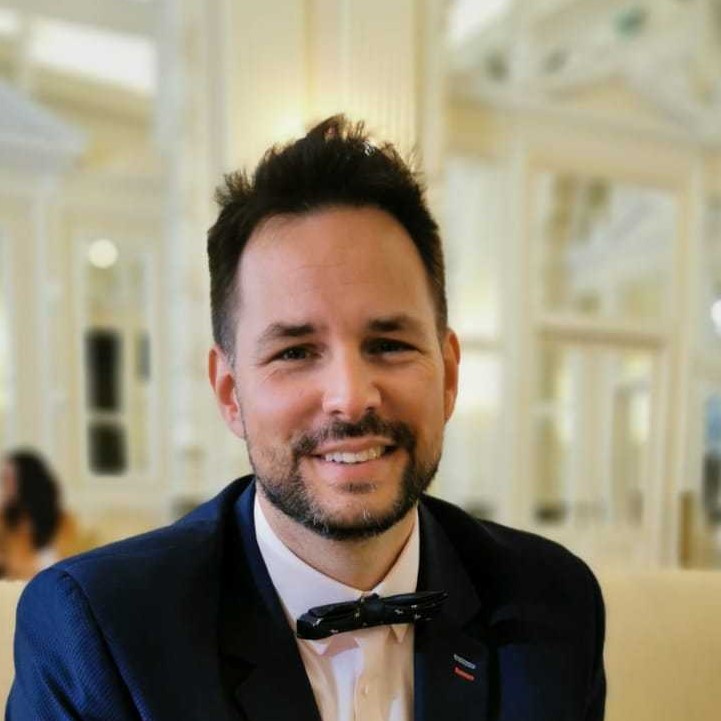About five years ago, following a great effort, we opened new offices in Prague and Brno with a big bang. After a few years, we closed them both in silence. In this blog entry, we would like to think about what we did not do quite so well, what we learned from it, and why it eventually did not work out in the end.
Why did we want to open new offices in Prague and Brno?
For a long time, our company has not been able to find quality developers within the Moravian-Silesian Region. Let’s take a dive into the numbers to find out why it was this way and why it is still the case to some extent today.
According to the Czech Statistical Office figures from 2017, only about 70,000 ICT specialists worked in the entire Czech republic. About 50 % of those specialists worked completely outside of the UI field, for example in the industrial sector. Only 12 % out of the remaining 35,000 ICT specialists worked in the Moravian-Silesian Region. That means only 4,200 ICT specialists worked in the IT sector in our region in 2017. We can only assume how many of them were really developers. Based on the CZSO data, there were other ICT processions among these specialists – SysOps, DevOps, networkers, SAP experts, coders, web designers, UX designers, testers, documentation writers, project and product managers… we could go on like this for quite some time. We have a “few thousand” developers in the region at the best. If we take into account the long-term statistics which state that about 1 in 6 programmers will succeed in our selection process, we know that there will be a few hundred developers at the best. And we need to find them, attract them, and drag them from another company because the job market with free developers is basically nonexistent within the Czech republic. There is a shortage of developers throughout the EU and the Czech republic finds itself below the average in the number of developers per capita. If we look into the CZSO report again, it explicitly states that 73 % of companies of our size have long-term open ICT positions, which they are not able to fill even with the best of intentions.
Based on these findings it became obvious that if the number of developers cannot be increased, then we would need to try to expand our radius. It was obvious to open new offices in Prague and Brno—both of these cities have the largest number of developers in the Czech republic. In an attempt to portray our subsequent successes and failures, it makes the most sense to break down the description of events into 4 coherent units – Local specifics, Recruitment Of SW developers, Adaptation and trial, and Common problems of a developer’s life
Local specifics
Prague
We somehow intuitively suspected that Prague was not Opava. However, the reality was even wilder than we were probably willing to admit. The first clash with the reality of Prague occurred when we started interviewing the first candidates online. One of the funniest experiences that stands out is a candidate lying in bed during the interview. We also had a candidate that demanded a surcharge of 20,000 per month when we mentioned that we are working with the AngularJS framework. What wasn’t so hilarious was finding out that most of the developers in Prague had not worked as employees for a long time, but as contractors. We were not prepared for this alternative back then and we did not want to accept it. It took us several years to admit that we were not able to change some things. We have learned that if we come across a situation where we have to choose between not cooperating with someone or cooperating in other forms than in a standard employment relationship, then we prefer to choose the latter.
The costs in Prague proved to be another challenge. Development in Prague is simply more expensive—much more expensive. De facto it is very close to the prices of development in Germany. We expected that the rent costs would be double, however, the wage demands exceeded our expectations. Our company views transparency and justice as the top company value. Paying twice as much (or even more) for the developer in Prague who was on a similar level as another developer in Opava… was something we did not want.
Finding developers in Prague with respect to our values and expectations proved to be highly difficult. At the moment when we decided to say NO to nonsensical rates in overpayment and to different cooperation than standard employment, the number of available developers shrunk to a number that was at best corresponding to the number in our region. Yet we still believed that maybe somehow we’d get lucky. That luck actually did show up, but at a completely different location – Ostrava.
Brno
The main obstacles we faced in Prague were relatively avoided during our hunt in Brno. Of course, the cost requirements were still higher than in our region, but the costs were somehow acceptable and simply reflected the market. As a result, we got up to 10 developers in Brno at one time, compared to a maximum of three in Prague.
If we should pick up one crucial difference between Brno and the Moravian-Silesian region, it is competition. While in our region I am absolutely adamant that a developer can’t find a better IT company, it just wasn’t true in Brno. We have been involved in a skirmish over developers, with many good and reputable companies that possess similar cultures and levels of development. Plus, offices full of people, which turned out to be our Achilles heel. Although all the newcomers to our Brno office knew they were coming to an office that was still being built, sooner or later they began to miss a certain higher level of socialization. In terms of office comfort, we did our best, but it was clear that we simply would not be able to match the level of comfort offered by famous international firms in the long run.
SW Developers Recruitment
We should begin with a fact that sounds funny now. More than five years ago, remote job interviews were only in their infancy, and a highly rare affair. From the very beginning, we didn’t have offices in Prague or Brno yet, so using Skype was the only way to recruit someone. In this way, we performed several dozen interviews and had a chance to compare success with the onsite interviews. Well, the results weren’t good, we weren’t capturing the attention of the developers the way we used to from our own region. Another unfavorable fact was that the candidates were about to enter only emerging offices, so they didn’t know much about what lay ahead. Moreover, we are talking about Brno and Prague, which is to say that the candidates were not attending just one—or at most two—interviews. When looking for an IT job in Brno, going to 4-5 interviews is the absolute minimum. Well, which company do you choose as a candidate? The best, of course, the one that appeals most to you. The first lesson, then, was that we began to go directly to Brno’s offices for interviews. If you really want to attract someone, you’ll probably do better in person than through an online meeting.
Beyond all our technological requirements, we must also look for the right types of people for our liberal and free-spirited company. Sounds good, but do you refuse to offer a guy who has all the technical skills he needs just because you’re not sure how well he’ll fit into the company? That’s a bit of a tougher question. Of course, over the years, we have occasionally managed to recruit someone who has not fully understood others, with corporate values, or an ultra-agile way of developing. Not everyone is comfortable with a minimalist level of control and great autonomy, either.
But what to do about it as part of the recruitment process? Over the years, we have learned and applied the following elements, which should largely eliminate possible recruitment disagreements.
- Focusing on Soft skills in the selection process – today it is no longer enough to explain in detail what our development looks like and what technologies we use, but to each candidate we try to explain what kind of person, with what soft skills we will be successful and satisfied. That we are not looking for lone wolves, and that interest in the entire development cycle of applications is necessary, etc.
- Experience day — actually, it’s more like half a day in practice, but that doesn’t change the fact that we just want to get to know each other a lot more. The candidate will meet several of his potential colleagues significantly more intensively, will see at least a small part of what developer life looks like, but will also become better familiarized with our domain, development environment, etc.
- Absolute transparency – it’s not just about getting to know each other as best as possible, but at the same time being as honest as possible to each other throughout the recruitment process. I can’t vouch for the candidates, but I can vouch for me and Peter that we’re trying to get things straight. Even the things we suspect the candidate might not like. There’s no point in hiding the truth.If it’s not pleasant for someone not to have a company MacBook, but HP with Ubuntu, then it’s best to be honest about it right away.
- Colleagues have the final word – unlike a lot of other companies, here the future colleagues of the recruited candidate have the last word to recruit. The CTO and HR have a kind of veto right early in the recruitment process, however, by the time a candidate has come on an experience day, the developers themselves will decide whether they want the person to join their party.
- Don’t recruit life partners — this item may sound a little funny, but it’s inextricably part of the experience we’ve had. The amount of difficult situations emanating from such a pact could not have been imagined by even the greatest fantasist among us. If we were ever recruiting a life partner from one of our employees again, certainly not to the same team.
And well, if all the catch-up mechanisms we currently have fail, there’s still a trial period.
The story continues in the part II of the article…

